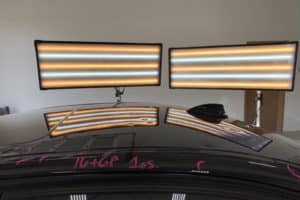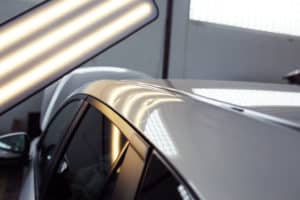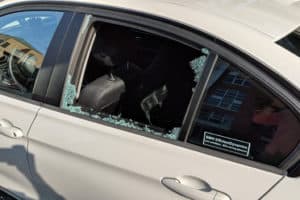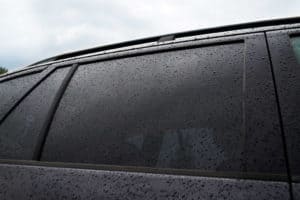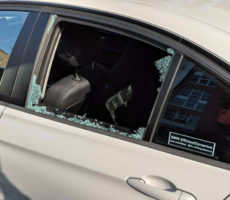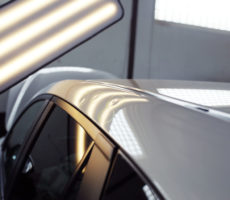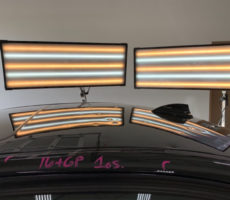You don’t have to pay a lot to fix a dent on a car. Paintless dent repair is a much cheaper option when it comes to fixing dents on cars. Let’s look at what exactly is paintless dent repair, and how much does it cost.
What is paintless dent repair? Paintless dent repair is a technique that uses specialized tools to pop the metal back into its original shape without damaging the car’s paint. Also called PDR, paintless dent repair can usually be done in 60 minutes or less, depending on the damage.
What’s great about this technique is that it doesn’t require any sanding or painting. It can also be done quickly and doesn’t cost much.
How much does paintless dent repair cost? Paintless dent repair costs around $50 to $125 for smaller dents, up to $150-$500 for bigger dents. The cost of dent repair will depend on factors such as dent size, location of the dent and the material where the dent is.
Let’s look closely at how paintless dent repair works, what’s the cost, and how to do it yourself.
Note: Some links may earn us a commission at no cost to you. Learn more in our privacy policy.
What Is Paintless Dent Repair and How Does It Work?
Paintless dent repair is a way of removing dings and dents on your car using special tools, without touching the paint. This means there’s no sanding, fillers, or paint necessary.
In the auto repair industry, the adoption of paintless dent repair techniques has marked a significant shift, prioritizing efficiency and the preservation of a car’s original finish. These methods, despite being more cost-effective, often outperform traditional dent repair, especially when considering turnaround time.
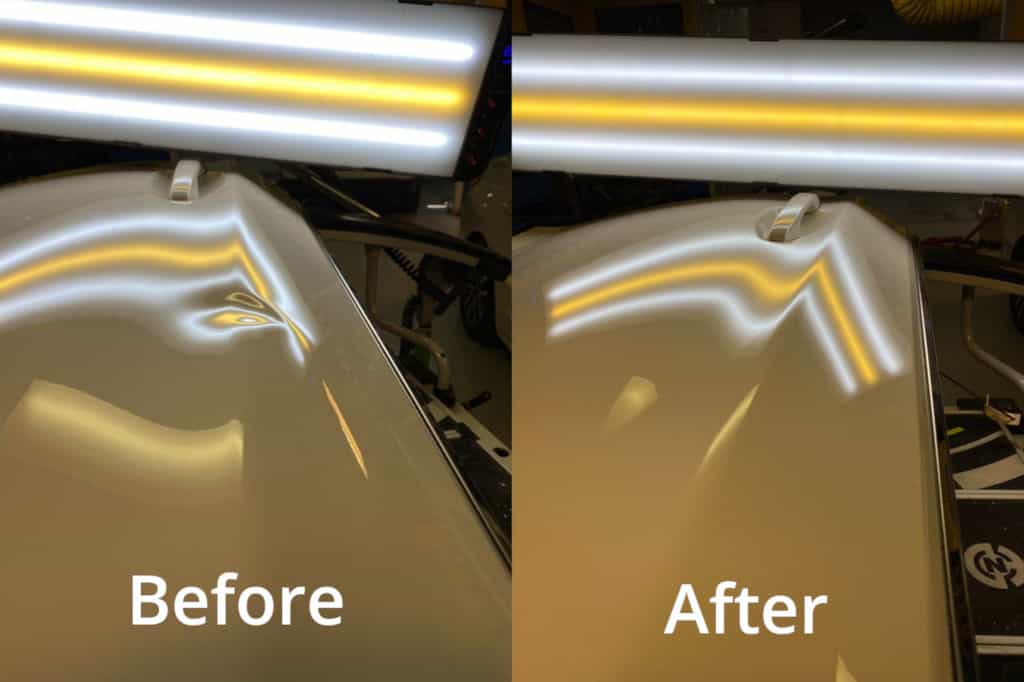
PDR can fix all kinds of dents caused by pebbles and road debris, parking accidents, as well as hail damage. Skilled technicians can also fix bumpers and dents of various sizes at almost any location on the body of the car. Paintless dent repair works for many reasons, but it should be done properly as well.
Benefits of paintless dent repair (PDR):
- It’s quick and effective
- Cheaper than traditional body shops
- No paintwork or sanding required
- No discoloration to your car
- No need to involve insurance
While many initially gravitate to paintless dent repair for its affordability, it’s the sheer precision of skilled technicians and the method’s environmentally friendly approach—minimizing waste by forgoing paint—that win most converts.
Technicians use many tools such as a dent puller (car dent remover) to pull the dent and recover the original condition of the car. The metal can be pulled by a glue pulling technique, while using knockdowns to massage the dent. Another way is to press the metal from the inside of the panel, and rods and body picks are used to massage the dents.
Here’s a great video with examples on how to fix dents with PDR, from Learn PDR Online:
They may also use other tools such as slide hammers and rubber hammers, as well as reflecting boards to carefully check the repair process.
Sometimes they heat the metal for easier manipulation. The body then becomes more flexible and easier to work with. All of this requires training and years of experience, given that there can be more than 100 different pieces of tools at their disposal.
How Much Does Paintless Dent Repair Cost?
Paintless dent repair can cost as little as $50-100 for light dents, $75-300 for medium, and up to $300-500 for larger dents. The cost will depend on several factors, such as the dent size, dent location, and the extent of the damage.
Here’s a PDR price guide so you can get an average feel of the cost:
TABLE – Paintless Dent Repair Cost
| Location/Damage | Very Light | Light | Moderate | Severe |
|---|---|---|---|---|
| Hood | $50-100 | $100-175 | $150-400 | $350-550+ |
| Roof | $75-150 | $150-200 | $200-500 | $400-600+ |
| Door | $50-100 | $100-150 | $125-300 | $300-500+ |
| Quarter | $50-100 | $100-150 | $125-300 | $300-500+ |
| Deck Lid | $50-100 | $100-150 | $125-300 | $300-500+ |
| Fender | $50-100 | $100-150 | $125-300 | $300-500+ |
From the table above we can see that for smaller dents, it costs between $50 and 100 to fix a dent in a car door. The price varies a bit, but usually, it’s below $100.
A similar price is for bumper dent, as it costs about $50 to $100 to fix a bumper dent, with very few permanent effects. Usually, you won’t be able to see where the dent was afterward. Rear bumper dents can cost very low, and sometimes can be done in under 30 minutes.
When it comes to the cost of fixing larger dents, the price is slightly higher, and costs about $75 to $150 to fix a big dent on a car, sometimes up to $200. The price will depend on several factors mentioned below.
The table also shows that rear quarter panel dent repair cost is usually between $50-150 for smaller dents and up to $300 and more for larger ones.
The main factor for PDR cost is the size of the dent. The size categories are a dime, nickel, quarter, and a half-dollar. There is also baseball size dent and larger. All these categories are taken into account when determining the cost to pop out a dent. Once you calculate the cost, you may want to decide whether to involve insurance.
One hidden advantage of paintless dent removal cost is the future savings it ensures. By preserving your vehicle’s original paintwork, the method protects the car’s resale value, a factor often overlooked when gauging the price of dent repairs.
It’s worth noting that while PDR might seem straightforward, the skill behind mastering these techniques directly correlates to the cost. Think of it as an art form where seasoned professionals, using their intricate tools and knowledge, perform repairs that are virtually undetectable.
Factors Affecting the Cost of Paintless Dent Repair
Here are the main factors affecting the cost of PDR:
- Size of the dent (dime, nickel, quarter…)
- number of dents
- dent location
- type of metal for body
- and for bumpers, the material (aluminum, carbon fiber, plastic…)
The size of the dent is the main one, but the extent of damage is important because if you have multiple dents, they add up to a higher cost. The location of the dent affects the cost because it affects the difficulty to fix the damage. Dent removal cost will depend on all these factors, and maybe a few more.
Paintless dent removal cost is cheaper than traditional bodywork, and it can save you time as well as money. With a skilled technician and minor damage, it will be as if there was no dent in the first place.
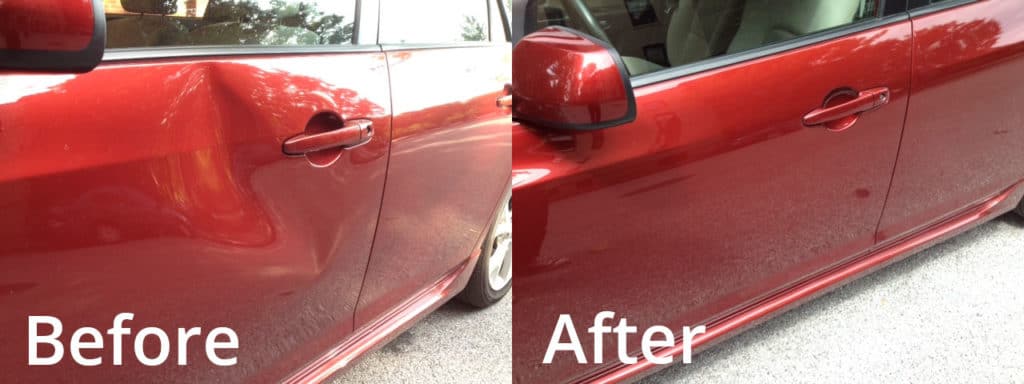
In many cities, local workshops or community centers host demonstrations on paintless dent repair techniques. Attending one of these can provide invaluable insights into the process and reaffirm why it’s such a cost-effective choice.
How to Choose a Skilled Technician for PDR
Look for a technician who has been trained and certified in PDR techniques, as this ensures they have the necessary skills and knowledge to perform the job correctly.
Check for experience. Ask the technician how long they have been practicing PDR and how many similar jobs they have done in the past. A technician with a lot of experience is more likely to have encountered various types of dents and can handle them efficiently.
Additionally, it’s essential to check their reputation and reviews. Look for a technician with positive reviews from previous customers, as this indicates their work is of high quality. One of the easiest ways to check for reviews is on Google itself.
Check their equipment. Ensure that the technician has the latest equipment and tools necessary for PDR. Advanced tools like PDR lights, slide hammers, and knockdowns can make the process easier and more efficient.
When estimating the paintless dent removal cost, always factor in the technician’s experience. Just like how one wouldn’t skimp on a surgeon based on price, the same goes for a PDR technician—a little extra spent can ensure a seamless repair, safeguarding your vehicle’s aesthetics.
Finally, consider their customer service. A skilled PDR technician should be friendly, helpful, and willing to answer any questions you may have. They should also be transparent about the repair process and provide a clear estimate of the cost and timeframe for the job.
Factors Affecting the Quality of a PDR Job
Several factors can affect the quality of a PDR job. Here are some practical tips to consider when looking for a quality PDR technician
- Check for warranties and guarantees. A reputable PDR technician should offer a warranty or guarantee on their work. This indicates their confidence in their ability to perform a quality repair and gives you peace of mind.
- Ask for examples of previous work. Request examples of previous repairs the technician has done, either through pictures or in person. This can give you an idea of the quality of their work and what you can expect for your repair.
- Check their pricing. While pricing shouldn’t be the only factor in your decision, it’s important to ensure that the technician’s rates are reasonable and competitive. Be wary of technicians who offer prices that seem too good to be true, as they may be cutting corners to make a profit.
- Evaluate their communication skills. Choose a technician who communicates clearly and professionally, both in person and over the phone or email. They should be willing to answer your questions and explain the repair process to you.
- Ask for recommendations. Ask friends, family, or your local car dealership for recommendations on quality PDR technicians in your area. This can give you a trusted referral and save you time in your search.
By considering these practical tips, you can find a quality PDR technician who can perform a high-quality repair on your vehicle.
Paintless Dent Repair – How To DIY
Just like we can tint car windows by ourselves, we can learn techniques of paintless dent removal as well, but only a few can master them. If you’re looking to do some high quality PDR repairs, you may need higher quality tools such as these excellent PDR lights.
Here’s a quick guide on how to do paintless dent repair by yourself on a bumper:
Use a plunger
The easiest way to pop out a small or medium-sized dent is to use a plunger. Just splash some water on both the dent and the plunger and start pushing and pulling until it pops out. Make sure it’s a cup plunger (for sinks), and not a flange one (for toilets).
Use boiling water
You may encounter some difficulties with plastic bumpers. You can solve this issue by boiling some water and throwing it on the dent to make it more flexible.
Use a hairdryer and compressed air
Start by heating the bumper with a hairdryer at its maximum temperature, which will expand the plastic and make it more flexible. As soon as it gets hot, grab the can of compressed air, turn it upside down and begin spraying the area where the dent is. Cold air will cause the plastic to contract, and the dent will pop out.
Many times, it may be best just to have a professional do it, if the repair cost is reasonable. However, if you are determined to do it, here are more tips on how to do PDR yourself. Additionally, this video may help you as well:
Paintless Dent Removal Tools and Kits
Starting a paintless dent removal business can be challenging, as it requires learning to use professional tools and techniques. However, it’s still possible to start a small business in this niche.
To get started, you can practice with a dent removal kit that includes about 100 different pieces of tools, including PDR lights, slide hammers, and knockdowns. It can take time to master these tools and techniques, but with practice and learning from a professional, you can reach success sooner.
The cost of paintless dent repair tools for newcomers is usually around $100 to $200, which is affordable. You can do a lot of work with a starter kit, but advanced levels require an investment of around $3,000 for a solid PDR kit.
Keep in mind that every business starts small, and it takes time to grow. The first step is to practice on dented doors or learn from a professional in your area. Although the first small dent can cost $50-100, subsequent dents cost less if you hire someone. Remember that with dedication and perseverance, it’s possible to succeed in this business.
You can get started with these paintless dent removal tools:
- OEMTOOLS Dent Puller Set (amazon)
- Anyyion Dent repair kit (amazon)
- Wcaro Dent Repair Kit (amazon)
- Keco Glue Pulling Starter Kit (for newcomers)
- Keco Robo Mini Dent Lifter Hail Kit (most popular)
- Keco Level 2 Glue Pull Repair System with cart (for advanced level)
- Dentcraft Tools PDR Tool Sets
These dent repair tools can be a great start not just for personal use but to provide service as a business. It takes watching some “how-to” videos and a lot of practice to become great at it, but if you take your time, they can be a great start to creating your own small PDR business.
To do high quality PDR work you need better tools, starting from best PDR Lights and light boards to various hammers, rods, bars and glue guns. The cost of paintless dent repair tools at can be in thousands, some of them above $3,000 for a complete set of tools. Then again, this isn’t a niche where you’d want to cheap out.
FAQs
Is hail damage worth fixing and how much would it cost?
If the hail damage didn’t scratch the paint, then a good body shop can make those dents go away. Typical hail damage car repair cost ranges between $2,500 and $3,000 in the US. Smaller dents usually cost around $30 to 50, while larger ones can cost above $75.
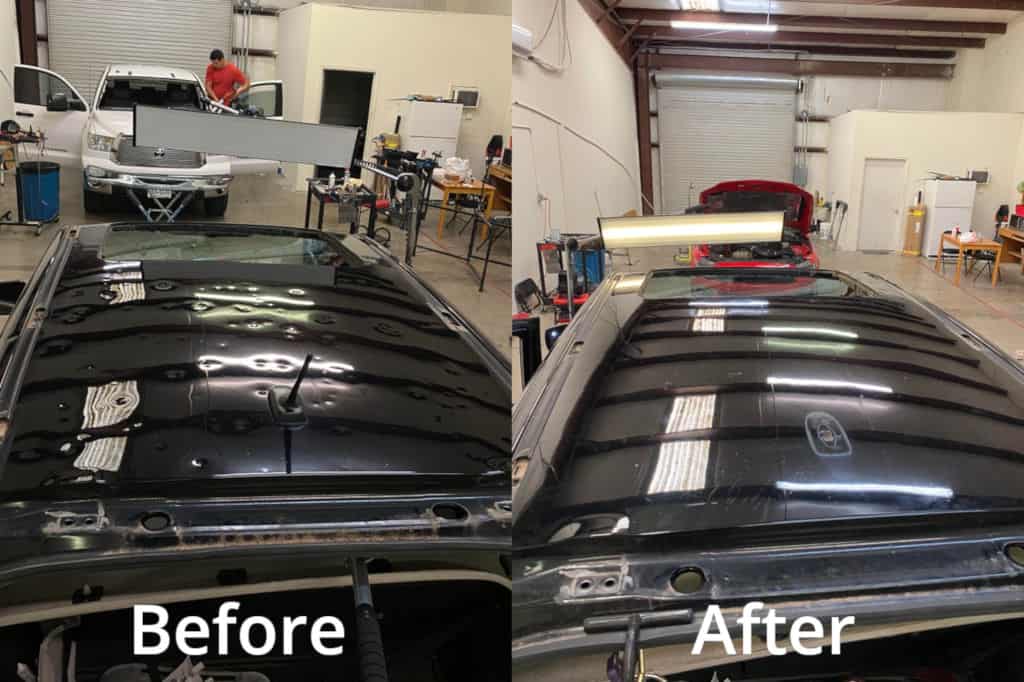
How big of a dent can paintless dent repair fix?
Using specialized tools, paintless dent repair can fix almost any dent size, from a dent of the size of a dime, up to large impact dents. If the dent was too large, once it pops up slight damage may still be visible, due to the large area of the impact.
Can PDR fix all types of dents?
PDR can fix many types of dents, but not all. Dents that are too large or have paint damage may require traditional repair methods.
Will PDR affect the resale value of my car?
No, PDR can actually improve the resale value of a car by restoring its appearance and preventing further damage.
How long does it take to complete a PDR job?
The length of time it takes to complete a PDR job depends on the severity and location of the dent. Minor dents can be fixed in as little as a few hours, while larger and more complex dents may take several days to repair.


